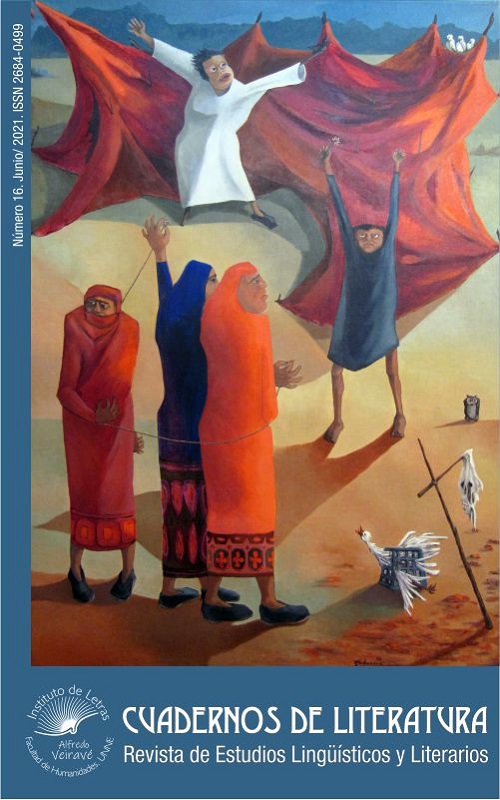Cerraba los ojos para vivir. El tema del dolor del destierro en textos autobiográficos de Héctor Tizón
DOI:
https://doi.org/10.30972/clt.0165424Palavras-chave:
exilio, clásico, literatura comparada, apropiación, Héctor TizónResumo
El propósito de este artículo es analizar y comprender la relación que se establece entre el tema clásico del viaje de exilio y la producción literaria del escritor argentino Héctor Tizón y se centra en los tópicos del dolor de la partida y del sentimiento de pérdida de la patria, tematizados en algunos capítulos del libro No es posible callar (2004). Entre las formas de emergencia de los clásicos en estos textos autobiográficos de Héctor Tizón, seleccionamos la asimilación de Ovidio como paradigma del dolor del exilio, con la particularidad de que, en su recepción, el sentido ha sido mediado por otro autor; así también, la figura de Odiseo, aportada al diálogo intertextual por el poema Ulysses de A. L. Tennyson. El enfoque teórico-metodológico se enmarca en la literatura comparada y recurre al concepto de transtextualidad (Genette, 1989), que fundamenta el tramado de las relaciones entre los diferentes textos. Asimismo, desde el punto de vista de la recepción clásica, algunos conceptos operativos, como apropiación y diálogo (Hardwick, 2003), contribuyen a que el trabajo crítico avance en la explicación de las nuevas significaciones producidas en la recepción creativa de nuestro autor.









52.jpg)









